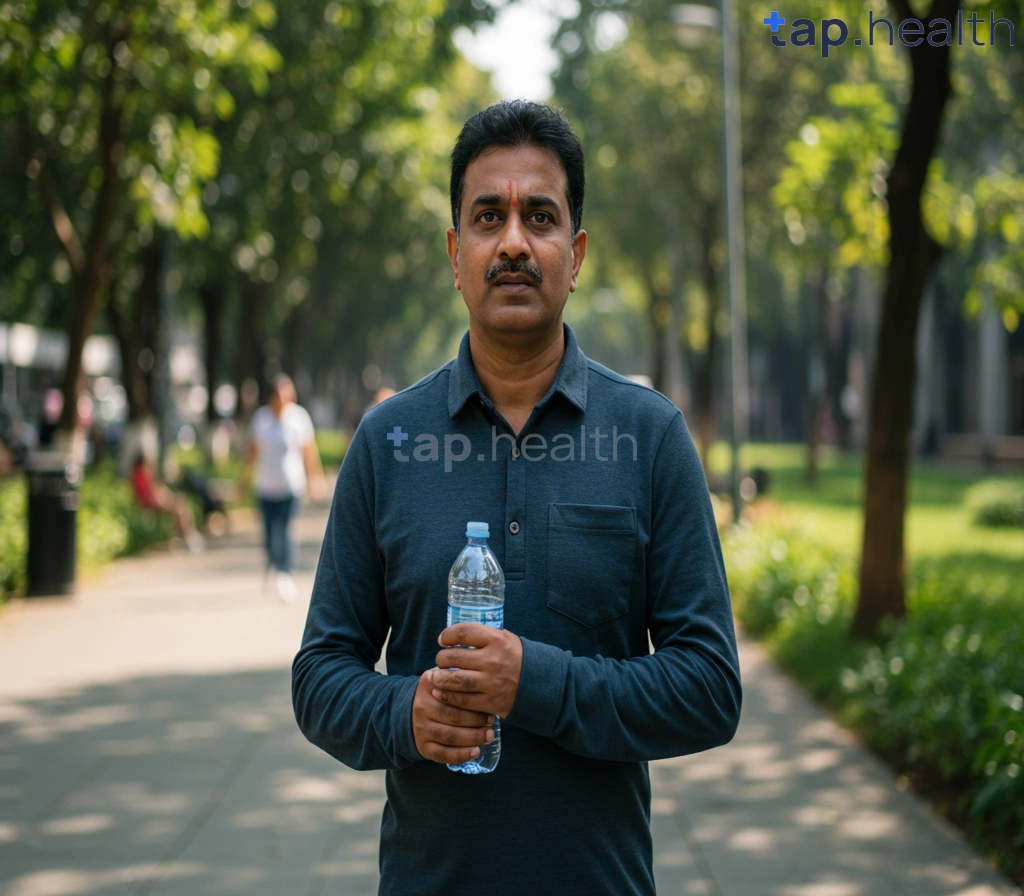Table of Contents
- Reliable Diabetes Information: Spotting Credible Sources
- Navigating Diabetes Search Results: A Guide to Accuracy
- Understanding Your Diabetes Diagnosis: Key Search Terms
- Top Diabetes Websites: Your Guide to Trustworthy Information
- What to Search When Managing Your Diabetes?
- Frequently Asked Questions
- References
Living with diabetes means navigating a constant stream of information, and finding reliable sources can feel overwhelming. Are you struggling to decipher the conflicting advice you find online when searching for diabetes management tips? This blog post, Understanding Your Diabetes Search Results: A Guide to Reliable Information, is designed to help you. We’ll equip you with the tools and knowledge to confidently evaluate online resources and ensure you’re making informed decisions about your health. Let’s learn how to sort the wheat from the chaff when it comes to diabetes information. Get ready to become a savvy consumer of diabetes-related content!
Reliable Diabetes Information: Spotting Credible Sources
The Challenge of Finding Trustworthy Information
Finding reliable information about diabetes, especially in India and tropical countries, can be challenging. The sheer volume of online resources, coupled with the fact that 50% of diabetes cases worldwide are undiagnosed, means many are seeking information without a clear understanding of what’s trustworthy. This makes it crucial to develop critical evaluation skills.
Identifying Credible Sources
Look for information from reputable organizations like the World Health Organization (WHO), the Indian Council of Medical Research (ICMR), or well-established diabetes associations in your specific country. Check the authors’ credentials – are they medical professionals, researchers, or registered dietitians? Be wary of websites selling products or promoting unproven cures; reliable information focuses on evidence-based practices. Look for cited sources and up-to-date information; outdated advice can be harmful. If you’re unsure, consult your doctor or a certified diabetes educator. For further guidance on safe supplement use, see our blog on Safe and Effective Dietary Supplements for Diabetes Care.
Prioritizing Your Health in India and Tropical Countries
In regions like India and other tropical countries, access to healthcare can vary significantly. Therefore, finding reliable diabetes information is even more vital. Prioritize sources that address the specific challenges and cultural contexts of your region. Seek out information available in your local language to ensure complete understanding. Remember, managing diabetes effectively requires reliable information and proactive healthcare engagement. Don’t hesitate to seek professional medical guidance for personalized advice. For practical tips on effective management, check out our blog on 10 Proven Tips for Effective Diabetes Management.
Navigating Diabetes Search Results: A Guide to Accuracy
Finding reliable information about diabetes, especially in the context of Indian and tropical countries, can be challenging given the sheer volume of online content. With the global prevalence of diabetes projected to rise from 9.8% in 2021 to 11.2% in 2045, affecting an estimated 783.7 million people aged 20-79, accurate information is crucial. This increase is particularly significant in regions like India and other tropical countries, where lifestyle factors and genetic predispositions often play a larger role.
Identifying Credible Sources
Trustworthy sources for diabetes information include websites of reputable organizations such as the World Health Organization (WHO), the International Diabetes Federation (IDF), and leading medical journals. Look for websites with clearly stated authors, verifiable credentials, and evidence-based information. Be wary of sites promoting unproven cures or treatments, especially those focusing solely on anecdotal evidence. In India and other tropical countries, cultural factors may influence the spread of misinformation; therefore, always prioritize sources that acknowledge these regional nuances.
Evaluating Information Quality
When reviewing diabetes information online, check the date of publication. Medical knowledge evolves rapidly, so outdated information may be inaccurate or misleading. Look for details on the research methodology used. The presence of citations and links to supporting evidence strengthens the credibility of the content. Finally, consider the overall tone and language – is it objective and balanced, or does it promote a particular product or viewpoint? Understanding the link between diabetes and obesity, for example, is crucial for effective management, and we explore this further in our article, Understanding the Link Between Diabetes and Obesity.
Finding Region-Specific Information
For information relevant to the Indian subcontinent and other tropical regions, search for terms like “diabetes management in India,” “tropical diabetes complications,” or “diabetes prevention in South Asia.” This targeted approach will help you uncover credible resources tailored to your specific needs and geographical context. Always remember to consult with your doctor or a qualified healthcare professional for personalized advice regarding your diabetes management. The challenges of managing diabetes increase with age, and we delve into this in our comprehensive guide, Managing Diabetes as You Age: Challenges and Solutions.
Understanding Your Diabetes Diagnosis: Key Search Terms
Navigating the Information Landscape
Receiving a diabetes diagnosis can be overwhelming, especially in the face of countless online resources. Knowing which search terms to use is crucial for finding reliable information tailored to your needs. For individuals aged 20-64, a significant portion of the diabetic population (61%), understanding the nuances of managing the condition is vital. Similarly, for those aged 65+, representing 39% of those living with diabetes, access to clear and accurate information is paramount. Recognizing the early signs can be crucial for timely intervention. For more information on this, check out 10 Early Signs and Symptoms of Diabetes?
Effective Search Strategies for Indian & Tropical Countries
In India and other tropical countries, specific challenges related to diabetes exist, such as dietary habits and access to healthcare. Therefore, incorporating region-specific keywords into your searches is essential. Consider using terms like “diabetes management in India,” “type 2 diabetes treatment in tropical climates,” or “best diet for diabetes in South Asia.” Adding terms like “ayurvedic treatment for diabetes” or “home remedies for diabetes in [specific region]” may yield relevant results, though always prioritize information from reputable sources.
Prioritizing Reliable Sources
Always prioritize information from trusted sources like government health websites, established medical organizations, and peer-reviewed journals. Be wary of unqualified individuals offering quick fixes or miracle cures. Remember, managing diabetes requires a holistic approach, combining lifestyle changes, medication (if prescribed), and regular check-ups with qualified healthcare professionals. Your doctor is the best source of personalized advice on your specific diagnosis and treatment plan. Don’t hesitate to seek their guidance. Understanding the potential implications of a diabetes diagnosis, such as disability considerations, is also important. For further insights, read Is Diabetes Considered a Disability? Understanding the Implications.
Top Diabetes Websites: Your Guide to Trustworthy Information
Navigating the Digital Landscape of Diabetes Care in India and Tropical Countries
Finding reliable information about diabetes management, especially in regions like India and tropical countries, can be challenging. Over 75% of people with diabetes live in low- and middle-income countries, highlighting the critical need for accessible and accurate resources. This means carefully evaluating online sources is crucial to ensure you’re receiving safe and effective advice tailored to your specific needs and environment.
Identifying Credible Online Diabetes Resources
Look for websites affiliated with reputable organizations such as the Indian Council of Medical Research (ICMR), the World Health Organization (WHO), or large, established hospitals with diabetes clinics in your region. These often provide evidence-based information translated into local languages. Be wary of sites promoting unproven cures or supplements; prioritize resources that emphasize lifestyle changes, medication adherence, and regular check-ups with healthcare professionals. Consider the source’s transparency – does it clearly state its funding and affiliations? A lack of transparency should raise a red flag.
Finding Region-Specific Information
Remember to search for information relevant to your specific location. For example, searching for “diabetes management in India” or “tropical diabetes treatment” will yield more accurate results than a general search. Many organizations offer resources tailored to specific populations, addressing issues like access to healthcare and culturally appropriate dietary advice. Prioritize sites that address the unique challenges faced by people with diabetes in your region. Making healthy food choices is also crucial, and you can learn more about the 20 Best Foods for People with Diabetes to support your management plan.
Taking the Next Step Towards Better Diabetes Management
Start by identifying two to three reputable websites focusing on diabetes care in India and tropical countries. Bookmark them for easy access and consult them regularly to stay informed about the latest research and best practices. Remember, reliable information is your best ally in managing your diabetes effectively. For additional practical tips, check out our guide on 10 Proven Tips to Effectively Manage Diabetes.
What to Search When Managing Your Diabetes?
Navigating the world of diabetes information online can feel overwhelming. With so much conflicting advice available, knowing where to find reliable sources is crucial for effective diabetes management in India and other tropical countries. Accurate information is key to maintaining healthy blood sugar levels and preventing complications.
Targeting Your Searches
Your search strategy should be precise. Instead of broadly searching “diabetes,” focus on specific aspects of your condition and needs. For example, instead of “diabetes diet,” try “diabetes diet plan for Indian cuisine” or “best diabetes food choices in hot climates.” Similarly, “diabetes management” could become “managing type 2 diabetes in tropical climates” or “managing gestational diabetes in India“. Remember to incorporate specific keywords related to your diabetes type (Type 1, Type 2, Gestational) and your current challenges. Managing cholesterol is also vital, and you can learn more about that in our article on How to Manage Cholesterol Levels with Diabetes?
Blood Pressure Monitoring & Search Terms
Blood pressure management is vital for people with diabetes. The recommended target blood pressure is generally below 140/90 mmHg, although some guidelines suggest aiming for below 130/80 mmHg. To find relevant information, search for phrases like “managing high blood pressure with diabetes in India,” “best blood pressure medication for diabetics in hot climates,” or “natural ways to lower blood pressure for diabetics in India“. Remember to always consult your doctor before making any changes to your medication or treatment plan. Avoiding common mistakes is also crucial. Check out our blog on 5 Common Mistakes People Make in Managing Diabetes to ensure you’re on the right track.
Finding Reliable Sources
Prioritize reputable sources like government health websites (e.g., the Indian Ministry of Health and Family Welfare), well-established diabetes organizations, and peer-reviewed research articles. Be wary of unverified information and always cross-reference findings with your healthcare provider. Taking control of your online search strategy is a powerful tool in managing your diabetes effectively.
Frequently Asked Questions on Understanding Diabetes Search Results
Q1. How can I find reliable information about diabetes, especially in India or other tropical countries?
Finding trustworthy diabetes information can be challenging. Prioritize sources like the WHO, ICMR, and national diabetes associations. Look for authors with medical credentials, cited sources, and up-to-date information. Be cautious of websites promoting unproven cures. Searching with specific location terms, such as “diabetes management in India,” is helpful.
Q2. What are the key signs that a source of diabetes information is unreliable?
Beware of websites or articles that lack author credentials, don’t cite sources, or promote unproven treatments or miracle cures. Always check if the information is current, as diabetes research and treatment constantly evolve.
Q3. What is the best approach to managing diabetes effectively?
Effective diabetes management needs a holistic approach. This includes making healthy lifestyle changes (diet and exercise), taking prescribed medication (if necessary), and attending regular check-ups with your doctor. Personalized advice from your doctor is crucial.
Q4. Where should I go for personalized advice and treatment?
Always consult with your doctor or a qualified healthcare professional for a personalized diagnosis, treatment plan, and ongoing care. They can assess your specific needs and provide tailored recommendations.
Q5. Why is it important to be critical of online diabetes information?
Misinformation about diabetes is common, especially online. Unreliable information can lead to improper management, potentially worsening your condition. Always critically evaluate your sources to ensure they are credible and backed by medical evidence.
References
- A Practical Guide to Integrated Type 2 Diabetes Care: https://www.hse.ie/eng/services/list/2/primarycare/east-coast-diabetes-service/management-of-type-2-diabetes/diabetes-and-pregnancy/icgp-guide-to-integrated-type-2.pdf
- Children with Diabetes : A resourse guide for families and school. : https://www.health.ny.gov/publications/0944.pdf




